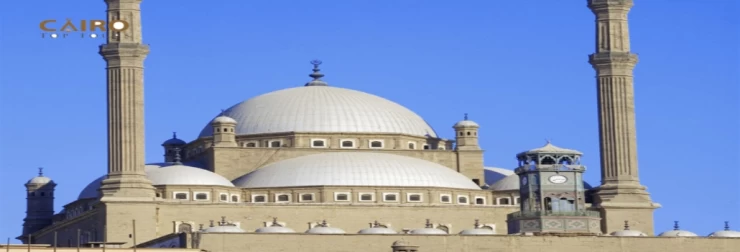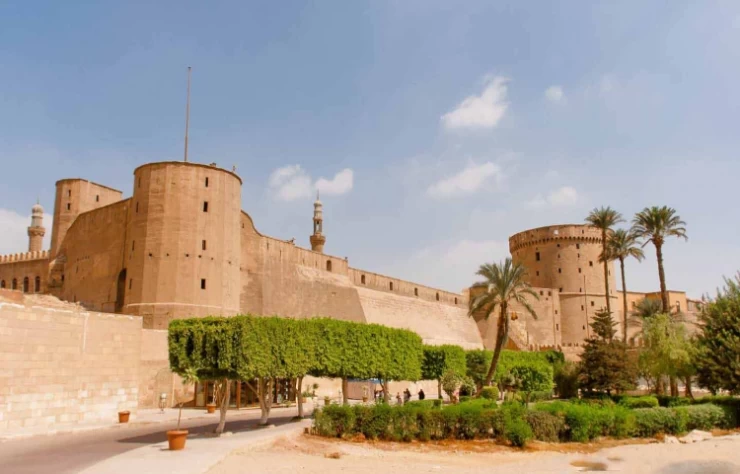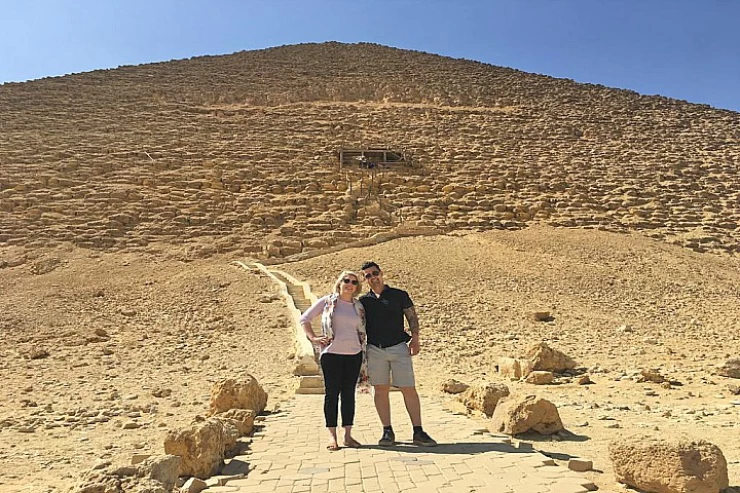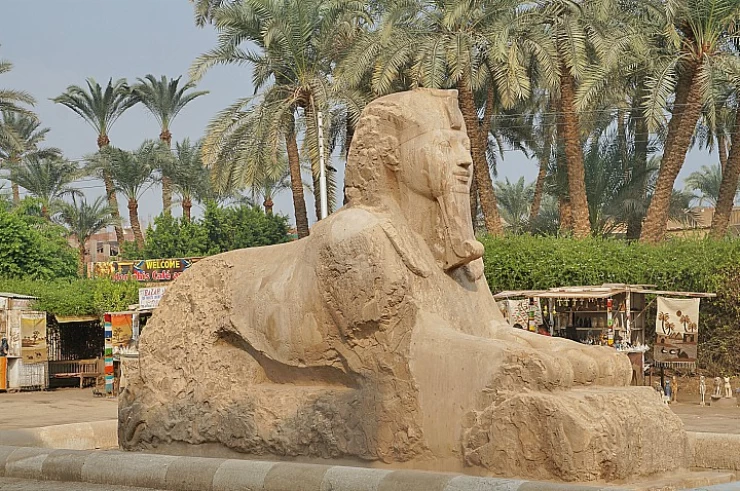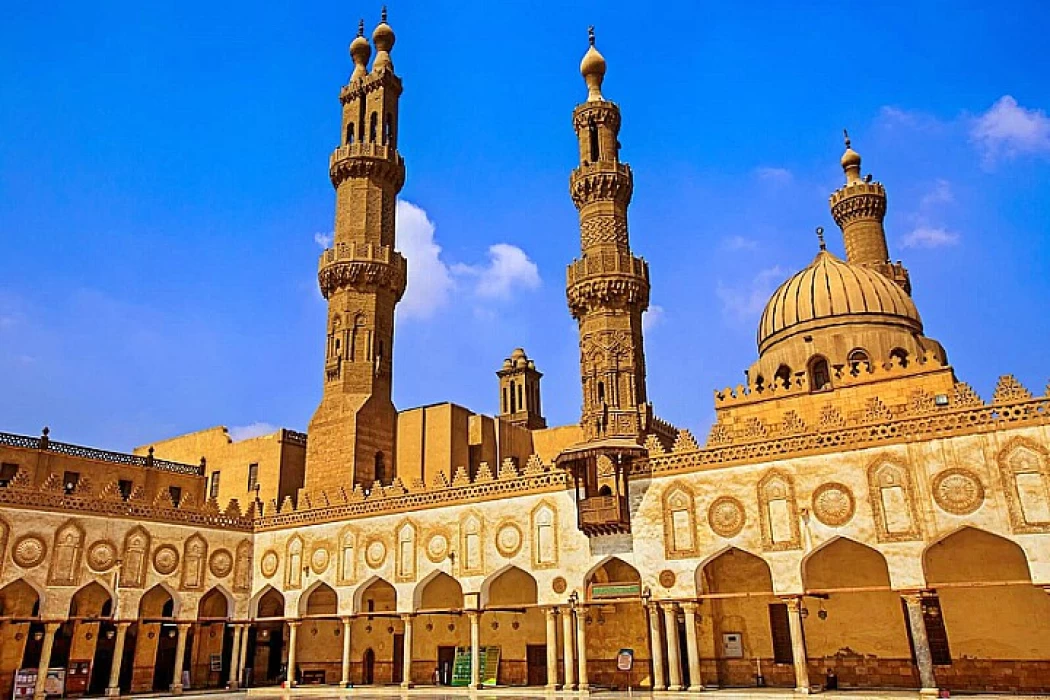
伊斯兰开罗
伊斯兰开罗位于现代大都市开罗的中心地带,这里的过去、文化和多年来的信仰令人神往。该地区也被称为老开罗或中世纪开罗,已被联合国教科文组织认定并宣布为受其保护的建筑遗产。这里有令人印象深刻的清真寺、宗教学校和其他建筑,其历史可以追溯到伊斯兰帝国的黄金时代。对于游客来说,伊斯兰开罗是一个独特的地方,它将游客带入了一个到处都能听到穆萨辛的哭声、人们的鼻子闻到温暖的香料味的时代。
VVA 伊斯兰开罗简史 伊斯兰开罗概念的时间特征可追溯到七世纪,当时阿拉伯征服者首次将伊斯兰教传入埃及。几个世纪以来,开罗在法蒂玛王朝、阿尤布王朝、马穆鲁克王朝和奥斯曼帝国等不同王朝的统治下崛起并成为伊斯兰帝国的中心。每一个王朝都为开罗留下了辉煌的建筑和深厚的文化底蕴。
伊斯兰开罗曾经辉煌一时,是一个商业、学校和寺庙繁荣的大都市。10 世纪,法蒂玛王朝迁入埃及,将开罗作为其政治首都,建造了爱资哈尔清真寺和最初的城市围墙等令人难忘的建筑。后来,马木路克人修建了令人惊叹的清真寺、陵墓和宗教学校,进一步美化了这座城市。时至今日,伊斯兰开罗仍被认为是全世界中世纪伊斯兰建筑改建最少的城区之一。
伊斯兰开罗的地标
说到伊斯兰开罗的名胜古迹,游客一定会感到目不暇接。下面列出了一些不容错过的地标性建筑:
1. 萨拉赫丁城堡 历史意义: 萨拉赫丁城堡建于 12 世纪,由伟大的萨拉赫丁(Tamerlane)下令建造,旨在保护开罗城免受十字军的威胁: 城堡是典型的中世纪军事建筑,其特点是高墙和瞭望台。在城堡内,游客可以看到令人印象深刻的穆罕默德-阿里清真寺,其尖顶倾斜,装饰华丽。俯瞰机会: 城堡是一座美丽的古堡,风景优美,视野开阔,在天气好的时候,甚至可以看到很远处的金字塔,非常适合拍照。
2. 爱资哈尔清真寺教育: 阿兹哈尔清真寺始建于公元 970 年,是世界上最古老的大学之一,也是伊斯兰教教育的代表。
艺术 清真寺是法蒂玛王朝时期典型的精美建筑艺术品。其建筑群拥有精雕细琢的几何图形、灰泥图案和精美的大理石地板。不过,他们的建筑艺术作品也得到了其他帝国的美化,在伊斯兰艺术的大旗下形成了多种建筑风格的混合体。
精神: 它仍然是一个宗教中心和文化中心,吸引着来自地球各个角落的学者、游客和其他访客。它的氛围舒适,让人们从喧闹的城市中解脱出来。
3. 汗哈利利集市
充满活力的集市: Khan El Khalili 始建于 14 世纪,是开罗最著名的露天市场之一。迷宫般的窄巷里店铺林立,是发现传统手工艺品、珠宝、香料和纪念品的绝佳地点。
历史悠久的茶馆 在集市上闲逛时,可以到历史悠久的茶馆歇歇脚,比如 El Fishawi's 茶馆,它为顾客提供茶水和咖啡已有 200 多年的历史。这里是观赏人流和感受当地文化的最佳地点。
手工作坊: 许多摊位都设有手工作坊,工匠们在这里制作复杂的黄金首饰、手吹玻璃器皿和色彩斑斓的纺织品,让人一窥开罗的手工艺遗产。
4. 苏丹哈桑清真寺
宏伟的建筑: 这座清真寺建成于 14 世纪,是马穆鲁克设计风格的缩影。清真寺的墙壁厚而垂直,大拱门匍匐而建,中央庭院围成一个沐浴区。
教育中心:该建筑最初是一座清真寺,后来附设了一所伊斯兰学校(madrassa)。其目的是培训四所逊尼派法律学校的学生。
令人惊叹的特色: 这座令人惊叹的清真寺有大理石镶嵌、细致的木雕和气势恢宏的米哈拉布,里面汇集了马穆鲁克统治时期的最佳作品。
伊斯兰开罗的文化体验
伊斯兰开罗的文化活动伊斯兰开罗不仅限于参观一些古老的档案馆和教堂,它还是一种文化体验。因此,这里有一些活动可以作为您访问的一部分:
1. 在阿尔塔努拉埃及传统舞蹈团(Ar-Tanura Egyptian Heritage Dance Troupe)观看苏菲音乐表演: 演出地点位于 Wekalet El Ghouri,这是一座作为文化中心的古老建筑,演出不仅结合了苏菲音乐和旋风舞,这些艺术家表演的是一种古老的精神舞蹈,与神合一: 喧闹的音乐、鲜艳夺目的服装和旋转的苦行僧令人陶醉,这一切很容易让人联想到开罗伊斯兰教的灵性。
2. 在伊斯兰艺术博物馆学习伊斯兰艺术的流派和背景一个令人惊叹的展览: 马来西亚伊斯兰艺术博物馆收藏了有史以来最丰富的伊斯兰艺术品,包括纺织品、陶瓷器、木制品以及来自整个伊斯兰穹顶的书页和文件。探索: 可以找到不同伊斯兰帝国的物品及其文化和伊斯兰世界的艺术成就。
伊斯兰开罗: 埃及丰富遗产的鲜活见证
开罗不仅拥有历史古迹,还是一个拥有自己的历史和活生生的人的地理空间。开罗是一个见证了帝国兴衰的地方,但却成功地保留了自己的特色,展示了埃及多年来的发展和变化。
漫步在伊斯兰开罗,从响亮的 “阿赞 ”声到工匠们用自己的双手制作产品的嘈杂声,人们可以听到几个世纪前的故事。该地区在开罗历史上也扮演着贸易、教育和宗教中心的重要角色。
对于那些希望探索埃及核心地区的游客来说,伊斯兰开罗是一次时间之旅,它将带您走近伊斯兰艺术和手工艺的美丽世界,走近开罗的历史,走近这座无数个时代以来一直是世界中心的城市。
Islamic Cairo is located in the heart of the modern metropolis of Cairo, a place of fascination with its past, culture and beliefs that have been practiced over the years. Also known as Old Cairo or Medieval Cairo, the area has been recognized and declared by UNESCO as an architectural heritage under its protection. It is home to impressive mosques, madrasas and other buildings dating back to the golden age of the Islamic Empire. For tourists, Islamic Cairo is a unique place that transports them to a time when the cries of Musasin could be heard around every corner and people's noses smelled warm spices.
go back to the seventh century when the Arab conquerors first introduced Islam into Egypt. Through the centuries, Cairo rose and became the center of the Islamic Empire under various dynasties: the Fatimids, Ayyubids, Mamluks, as well as the Ottomans. Each of these contributed and left traces of the architectural magnificence and cultural depth of the present surroundings.
Once it bloomed into its glorious days, Islamic Cairo was a thriving metropolis of commerce, schools, and temples. In the 10th century, the Fatimids moved to Egypt and made Cairo their political capital, erecting such memorable edifices as al-Azhar Mosque and the original city enclosure. Later, the Mamluks built their marvelous mosques, tombs, and madrassah structures, which embellished the city further. Even today, Islamic Cairo is still considered to be one of the least altered urban areas containing medieval Islamic architecture throughout the entire world.
When it comes to the variety of places to see in Islamic Cairo, the visitors will surely be loaded with so many sights. Here is a list of some of the landmarks that one should not miss:
1. Citadel of Salah El Din Historical Relevance: Built in the 12th century under the orders of the great Salah El Din (Tamerlane), the Citadel was constructed to protect the city of Cairo from the Crusaders’ threats.Main Characteristics of Construction: The citadel illustrates the example of military architecture of its typical medieval period, characterized by high walls and lookout points. Inside its grounds, tourists can come across the impressive Mosque of Muhammad Ali with its tilted spires and lavish decoration. Overlooking Opportunities: The Citadel is a beautiful and scenic old fortress that has an expansive view over Cairo, enabling you to see even the pyramids clearly at very far distances in good weather, which makes it ideal for taking pictures.
It was Founded in 970 AD, the Al Azhar Mosque is among the oldest universities in the world and a representation of education in Islam.
Art: The mosque is preserved as a fine architectural work of art typical of the Fatimid era. Its complex has exquisitely carved geometric shapes, stucco designs, and a beautiful marble floor. Their artworks in the form of buildings were, however, embellished by other empires, creating a mix of architectural styles under the umbrella of Islamic art.
Spirit: It’s still a religious hub and a cultural center, bringing in scholars, tourists, and other visitors from every corner of the earth. Its atmosphere is comfortable, which allows people a break from the noisy city.
Vibrant Market: Founded in the 14th century, Khan El Khalili is one of Cairo’s most famous souks (markets). A labyrinth of narrow alleys brimming with shops, it’s the perfect place to discover traditional handicrafts, jewelry, spices, and souvenirs.
Historic Tea Houses: While wandering through the bazaar, take a break at one of the historic tea houses, such as El Fishawi’s, which has been serving tea and coffee to patrons for over 200 years. This is a prime spot for people-watching and soaking in the local culture.
Artisan Workshops: Many stalls offer a peek into Cairo’s artisanal heritage, with workshops where craftsmen create intricate gold jewelry, hand-blown glassware, and colorful textiles.
4. The mosque of Sultan Hassan
The Magnificence of Construction: This mosque completed in the 14th century is an epitome of Mamluk designs. Its walls are thick and vertical, with large arches creeping along with a central courtyard enclosing an ablution area.
Center for Educational Purpose: This construction was intended to be a mosque at first and a madrassa (school) attached to it. The purpose was to train pupils in the four Sunni legal schools.
Awesome Features: The stunning mosque has marble inlay, detailed wood carving, and an imposing mihrab, which is a collection of the best works done during the Mamluk’s reign inside.
Cultural Engagements in Islamic CairoIslamic Cairo is not limited to the visit of some ancient archives and churches; it is a cultural experience. So here are some of the activities that could be part of your visit:
1. Attending a Sufi music performance at Ar-Tanura Egyptian Heritage Dance TroupeSpiritual Music: Not only is the venue located at Wekalet El Ghouri an ancient building that serves as a cultural hub, but the performance combines Sufi music and whirling dervishes that are artists performing an age-old dance of spirituality and unison with God.A Vivid Picture: All the spirituality that one associates with Islamic Cairo has easily been stripped away in the loud, festooning music, bright, glittering costumes, and the dervishes spinning around in an entrancing manner.
2. Studying Genre and Context of Islamic Art at the Museum of Islamic Art . An amazing exhibit: The Islamic Arts Museum Malaysia harbors the most extensive collection of Islamic arts ever assembled, consisting of textiles, ceramics, woodworks, and pages and documents from across the Islam dome. Explore: Objects from different Islamic empires and their cultures and achievements in arts within the Islamic world can be found.







